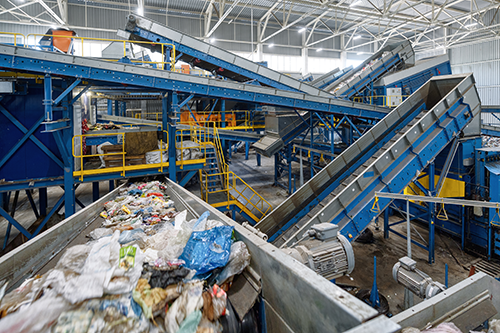
Industrial waste management isn’t just for big manufacturers. Small companies benefit from adopting waste reduction practices as well—perhaps even more. For small business owners, every resource counts. Managing waste creates opportunities for cost savings, regulatory compliance, and a more sustainable business model. Here are some actionable steps toward industrial waste reduction for small manufacturers.
Why Should Small Manufacturers Prioritize Waste Reduction?
For small manufacturers, waste represents inefficiency in production processes. By reducing waste, small business owners save on raw materials, disposal costs, and energy consumption. Effective waste management further enhances a company’s sustainability credentials, appealing to consumers and clients.
Many jurisdictions have tightened environmental regulations. That means manufacturers at every level must stay compliant and proactive in managing their waste to avoid fines, downtime, and other penalties. Here are a few steps to create a better waste management strategy.
Conduct a Waste Audit
Knowing what you throw away is the first step to reducing waste. A waste audit identifies where it’s coming from and classifies it into categories such as recyclables, byproducts, and landfill-bound materials. Waste monitoring software or engaging environmental professionals to conduct an industrial waste audit for your facility provides valuable insights into what processes need attention in your setup.
Optimize Manufacturing Processes
Analyze your production workflows to identify inefficiencies. Are materials going to waste at specific points in the production process? Implement lean manufacturing practices to eliminate unnecessary waste while maintaining output quality. Streamlined systems reduce overproduction, minimize defects, and optimize material usage.
Evaluate Your Supply Chain
Collaborate with vendors and suppliers who are waste-reduction-savvy. Make sure they employ recyclable, reusable, or biodegradable materials. For instance, replacing traditional packaging materials with recyclable ones makes a positive difference over time. Negotiate with vendors and suppliers to provide just-in-time deliveries and reduce surplus materials that often spoil, degrade, or otherwise turn into waste.
Engage Employees in Waste Reduction
Get employees involved in waste reduction. Provide training in material reuse, upcycling, and sorting recyclables. Employees play a direct role in day-to-day operations and can offer wise insights into making improvements.
Implementing these industrial waste reduction strategies for small manufacturers saves money, positions your business as an industry leader in sustainability, and aids in creating more productive ways of working. What’s more, waste reduction efforts improve customer loyalty, attract new clients, and often open doors to new certifications and incentives.
Waste reduction for small manufacturers is a challenge, but the rewards—financial, environmental, and reputational—are worth the effort. Start small, stay consistent, and watch as your savings and efficiency increase over time!


Be the first to comment